Orlando by Virginia Woolf: A Timeless Ode to Genderless Identity || Review (Eng/Esp)
I return to this corner for book and literature lovers, and to this endeavor I have undertaken: reviewing novels with women’s names and, in some way, connecting with the heroines we once wanted or still want to be. Today, I bring you a work that is more than a novel—it’s a literary experiment, a fictional biography, and a manifesto on identity freedom: Orlando, by Virginia Woolf.
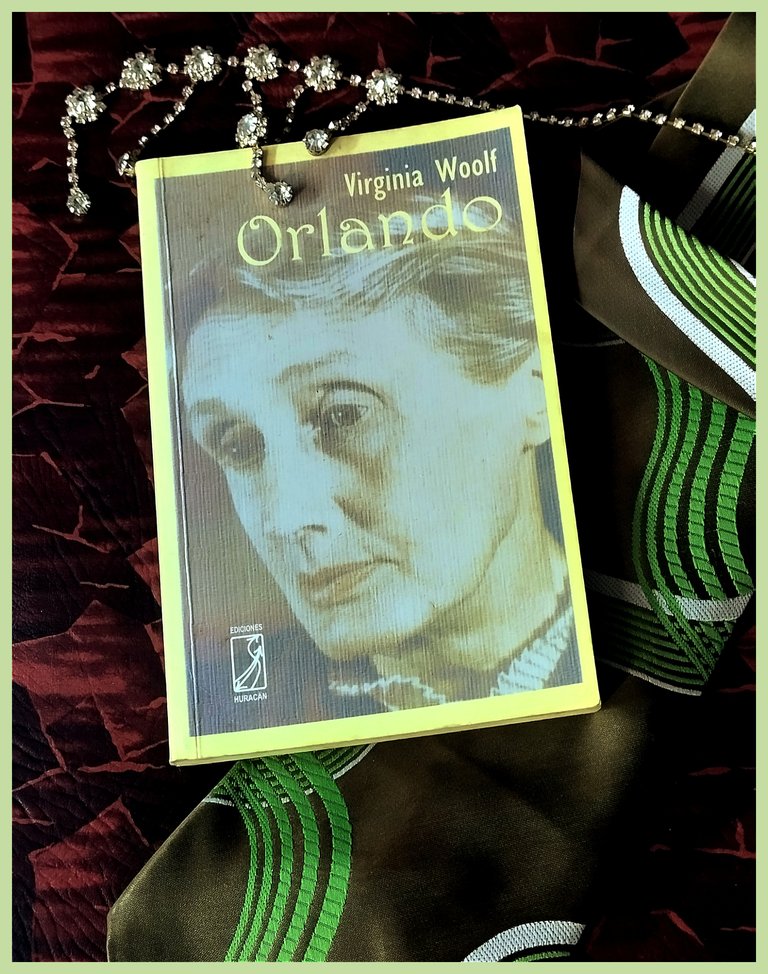
No, you didn’t misread: the novel’s name seems masculine, so you may wonder why I’ve included it in this series of reviews about novels with female names. By the end, you’ll agree that Orlando deserves a place in any review about feminine names.
Its protagonist begins their journey as a young nobleman in Elizabethan England and, after centuries of life, awakens as a woman in the 18th century without any explanation. This magical transformation, which is neither questioned nor justified, makes Orlando a pioneering work in exploring gender fluidity, androgyny, and the transgression of social norms.
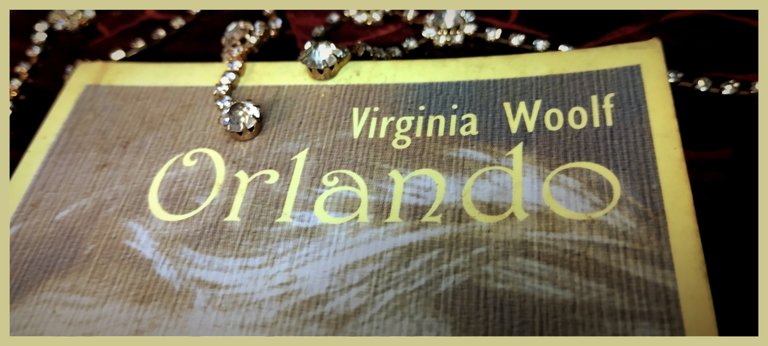
Orlando is unique because it challenges binary categories. As a man, they are melancholic, poetic, and sensitive; but as a woman, they retain their adventurous and intellectual essence while clashing against the limitations of their time. Virginia Woolf plays with the idea that gender is a construct: Orlando doesn’t change internally, but the world treats them radically differently.
In a memorable passage, the author ironically notes: “Orlando had become a woman; there is nothing more to add. In every other respect, they remained precisely the same”.
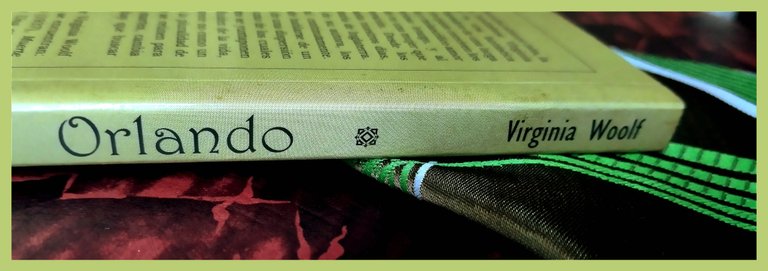
This ambiguity makes Orlando a dual character: hero and heroine, masculine and feminine, eternal and mutable. Their identity isn’t confined to their body but flows like the narrative itself, which leaps across centuries.
It’s speculated that Virginia Woolf drew inspiration from her lover, Vita Sackville-West, to whom she dedicated the book, creating an alter ego that transcended time and gender—an ode to human complexity.
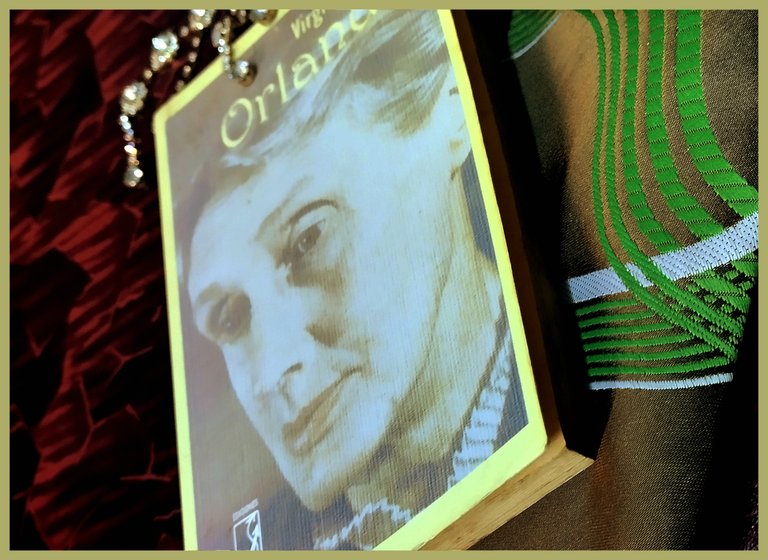
The novel is also a satire of traditional biographies. The author mimics the pompous style of historical chroniclers but interrupts with ironic commentary, thereby questioning the rigidity of literature and history dominated by male voices. Imagine reading along: Orlando, now a woman, faces condescending judgments of her poetry or harassment from an archduke who assumes she’s vulnerable.
Orlando (now a woman), in one passage, dresses as a man and walks through London, experiencing the freedom she thought lost: “No one leered at her. No one denied her a greeting. She felt the power of a sword at her waist”.
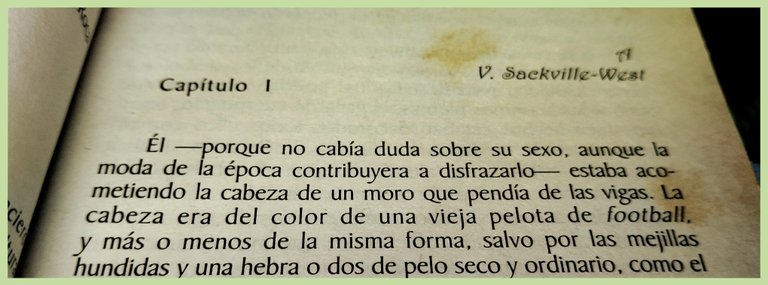
Ultimately, this novel critiques a society that reduces women to muses or wives while men hold knowledge and power. Some friends I discuss this book with say it’s like a fairy tale for adults, where magic lets Woolf bypass rational explanations and focus on the poetic. Imagine diving into the text and seeing the famous sex change happen between paragraphs, as if natural—that’s the revolutionary core, for identity needs no justification.
Virginia Woolf didn’t just break literary molds; she imagined a world where the self isn’t chained to the body. Orlando is a complete being precisely because they’re contradictory. In an era where identity debates remain relevant, this novel reminds us, as Woolf herself once wrote: “The soul has no gender”.
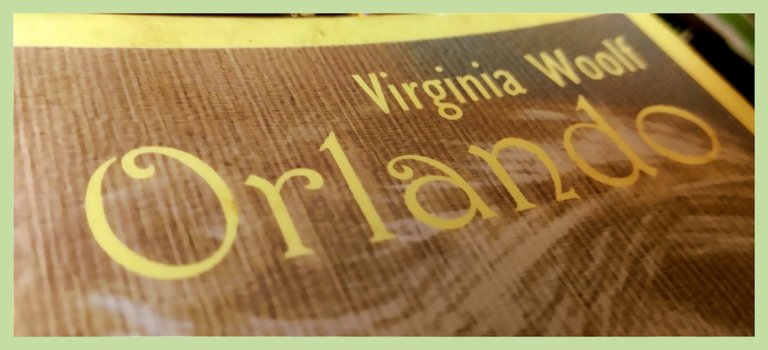
I invite you to read Orlando, or revisit it, keeping in mind that it’s a novel about the identity of being—a hymn, or ode, to plurality. It celebrates the feminine without denying the masculine, blending lyrical prose with humor to recreate a world beyond labels.
With that invitation, until the next review.

Previous post 👇🏻
https://ecency.com/hive-180164/@neuropoeta/re-reading-cecilia-valdes-love
https://ecency.com/hive-180164/@neuropoeta/eugenie-grandet-books-we-inherit
https://ecency.com/hive-180164/@neuropoeta/one-woman-one-book-one

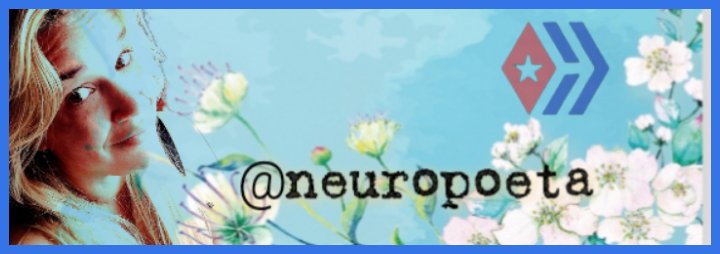
✨ 𝑻𝒉𝒂𝒏𝒌𝒔 𝒇𝒐𝒓 𝒓𝒆𝒂𝒅𝒊𝒏𝒈! ✨
𝑰𝒇 𝒚𝒐𝒖 𝒅𝒐𝒏’𝒕 𝒌𝒏𝒐𝒘 𝒎𝒆 𝒚𝒆𝒕—𝑰’𝒎 𝒂 𝑪𝒖𝒃𝒂𝒏 𝒏𝒆𝒖𝒓𝒐𝒍𝒐𝒈𝒊𝒔𝒕 𝒂𝒏𝒅 𝒘𝒓𝒊𝒕𝒆𝒓, 𝒂 𝒎𝒐𝒕𝒉𝒆𝒓, 𝒂 𝒘𝒐𝒎𝒂𝒏, 𝒂𝒏𝒅 𝒂 𝒅𝒓𝒆𝒂𝒎𝒆𝒓 𝒘𝒉𝒐’𝒔 𝒇𝒐𝒖𝒏𝒅 𝒊𝒏 𝑯𝒊𝒗𝒆 𝒂 𝒃𝒆𝒂𝒖𝒕𝒊𝒇𝒖𝒍 𝒔𝒑𝒂𝒄𝒆 𝒕𝒐 𝒔𝒐𝒂𝒓.
𝑨𝒍𝒍 𝒕𝒆𝒙𝒕 𝒂𝒏𝒅 𝒊𝒎𝒂𝒈𝒆𝒔 𝒂𝒓𝒆 𝒎𝒚 𝒐𝒓𝒊𝒈𝒊𝒏𝒂𝒍 𝒄𝒓𝒆𝒂𝒕𝒊𝒐𝒏𝒔, 100% 𝒉𝒖𝒎𝒂𝒏-𝒎𝒂𝒅𝒆 (𝒏𝒐 𝑨𝑰).
𝑩𝒂𝒏𝒏𝒆𝒓 𝒅𝒆𝒔𝒊𝒈𝒏𝒆𝒅 𝒃𝒚 𝑳𝒖𝒎𝒊𝒊.
𝑳𝒐𝒗𝒆𝒅 𝒕𝒉𝒊𝒔 𝒑𝒐𝒔𝒕? 𝑼𝒑𝒗𝒐𝒕𝒆, 𝒄𝒐𝒎𝒎𝒆𝒏𝒕, 𝒐𝒓 𝒓𝒆𝒃𝒍𝒐𝒈 𝒕𝒐 𝒔𝒑𝒓𝒆𝒂𝒅 𝒕𝒉𝒆 𝒘𝒊𝒏𝒈𝒔 𝒐𝒇 𝒄𝒓𝒆𝒂𝒕𝒊𝒗𝒊𝒕𝒚! 💛
VERSIÓN EN ESPAÑOL
Orlando de Virginia Woolf: Oda eterna a la identidad libre de género || Reseña
Regreso a este rincón de amantes del libro y la literatura, y a esta empresa que me he propuesto llevar a cabo: reseñar novelas con nombres de mujer y, de alguna forma, acercarme a las heroínas que quisimos o queremos ser. Hoy les traigo una obra que, más que una novela, es un experimento literario, una biografía ficticia y un manifiesto sobre la libertad identitaria: Orlando, de Virginia Woolf.

No, no se han equivocado al leer: el nombre de la novela parece masculino, y entonces se preguntarán por qué la he incluido en esta serie de reseñas de novelas con nombre de mujer. Al concluir, me darán la razón en que Orlando merece un lugar en cualquier reseña sobre nombres femeninos.
Su protagonista comienza su viaje como un joven noble en la Inglaterra isabelina y, tras siglos de vida, despierta como una mujer en el siglo XVIII sin explicación alguna. Esta transformación mágica, que no se cuestiona ni se justifica, convierte a Orlando en una obra pionera en explorar la fluidez de género, la androginia y la transgresión de las normas sociales.

Orlando es singular porque desafía categorías binarias. Como hombre, es melancólico, poético y sensible; pero como mujer, conserva su esencia aventurera e intelectual, mientras choca contra las limitaciones de su época. Virginia Woolf juega con la idea de que el género es una construcción: Orlando no cambia en su interior, pero el mundo sí lo trata de manera radicalmente distinta.
En un pasaje memorable, la autora ironiza: “Orlando se había convertido en mujer; no hay nada que añadir. En todo lo demás, siguió siendo exactamente igual”.

Esta ambigüedad convierte a Orlando en un personaje dual: héroe y heroína, masculino y femenino, eterno y mutable. Su identidad no se reduce a su cuerpo, sino que fluye como la propia narrativa, que salta siglos.
Se especula que Virginia Woolf se inspiró en su amante, Vita Sackville-West, a quien dedicó el libro, creando un alter ego que trascendió el tiempo y el género, y de alguna u otra forma haciendo una oda a la complejidad humana.

La novela también es una sátira de las biografías tradicionales, donde la autora imita el estilo pomposo de los cronistas históricos, pero interrumpe con comentarios irónicos, y de esta forma cuestiona la rigidez de la literatura y la historia dominadas por voces masculinas. Imaginen ustedes que me leen: Orlando, como mujer, debe enfrentarse a que sus poemas sean juzgados con condescendencia o a que un archiduque la acose creyéndola vulnerable.
Orlando (ya mujer), en uno de los pasajes de la novela, se viste como hombre y sale a caminar por la ciudad de Londres y experimenta la libertad que siente perdida: “Nadie la miró con lascivia. Nadie le negó un saludo. Sintió el poder de una espada al cinturón”.

En definitiva, esta novela es una crítica a una sociedad donde se reduce a las mujeres a musas o esposas, mientras los hombres acceden al conocimiento y al poder. Dirían algunos amigos con los que hablo de esta novela que viene siendo como un cuento de hadas para adultos, donde la magia permite a Woolf eludir explicaciones racionales y centrarse en lo poético. Imaginen, y sumérjanse en la lectura para que vean cómo el famoso cambio de sexo ocurre entre párrafos, como si fuera natural, y allí está lo revolucionario, ya que la identidad no necesita justificación.
Virginia Woolf no solo rompió moldes literarios; imaginó un mundo donde el yo no está encadenado al cuerpo. Orlando es un ser completo precisamente porque es contradictorio, y en una época donde las discusiones sobre identidad siguen vigentes, esta novela es un recordatorio de que, como escribió en algún momento ella misma: “El alma no tiene género”.

Les invito a leer Orlando, o a releerla, y tener presente que es una novela sobre la identidad del ser, algo así como un canto —o una oda— a la pluralidad, que celebra lo femenino sin negar lo masculino, mediante una prosa lírica y mucho humor, recreando un mundo sin etiquetas.
Hecha la invitación, hasta la próxima reseña.

Publicaciones previas 👇🏻
https://ecency.com/hive-180164/@neuropoeta/re-reading-cecilia-valdes-love
https://ecency.com/hive-180164/@neuropoeta/eugenie-grandet-books-we-inherit
https://ecency.com/hive-180164/@neuropoeta/one-woman-one-book-one


✨ ¡𝑮𝒓𝒂𝒄𝒊𝒂𝒔 𝒑𝒐𝒓 𝒍𝒆𝒆𝒓! ✨
𝑺𝒊 𝒂ú𝒏 𝒏𝒐 𝒎𝒆 𝒄𝒐𝒏𝒐𝒄𝒆𝒔: 𝒔𝒐𝒚 𝒏𝒆𝒖𝒓ó𝒍𝒐𝒈𝒂 𝒚 𝒆𝒔𝒄𝒓𝒊𝒕𝒐𝒓𝒂 𝒄𝒖𝒃𝒂𝒏𝒂, 𝒎𝒂𝒅𝒓𝒆, 𝒎𝒖𝒋𝒆𝒓 𝒚 𝒔𝒐ñ𝒂𝒅𝒐𝒓𝒂 𝒒𝒖𝒆 𝒆𝒏𝒄𝒐𝒏𝒕𝒓ó 𝒆𝒏 𝑯𝒊𝒗𝒆 𝒖𝒏 𝒉𝒆𝒓𝒎𝒐𝒔𝒐 𝒆𝒔𝒑𝒂𝒄𝒊𝒐 𝒑𝒂𝒓𝒂 𝒗𝒐𝒍𝒂𝒓.
𝑬𝒍 𝒕𝒆𝒙𝒕𝒐 𝒚 𝒍𝒂𝒔 𝒊𝒎á𝒈𝒆𝒏𝒆𝒔 𝒔𝒐𝒏 𝒅𝒆 𝒎𝒊 𝒂𝒖𝒕𝒐𝒓í𝒂, 100% 𝒉𝒖𝒎𝒂𝒏𝒐𝒔 (𝒔𝒊𝒏 𝑰𝑨).
𝑩𝒂𝒏𝒏𝒆𝒓 𝒅𝒊𝒔𝒆ñ𝒂𝒅𝒐 𝒑𝒐𝒓 𝑳𝒖𝒎𝒊𝒊.
¿𝑻𝒆 𝒈𝒖𝒔𝒕ó 𝒆𝒔𝒕𝒂 𝒑𝒖𝒃𝒍𝒊𝒄𝒂𝒄𝒊ó𝒏? 𝑽𝒐𝒕𝒂, 𝒄𝒐𝒎𝒆𝒏𝒕𝒂 𝒐 𝒓𝒆𝒃𝒍𝒐𝒈𝒖𝒆𝒂 𝒑𝒂𝒓𝒂 𝒂𝒚𝒖𝒅𝒂𝒓 𝒂 𝒅𝒆𝒔𝒑𝒍𝒆𝒈𝒂𝒓 𝒆𝒔𝒕𝒂𝒔 𝒂𝒍𝒂𝒔. 💛
After reading your writing, my interest in the book increased. I have never read such a beautiful analysis about Orlando before. You have especially highlighted the author's thoughts and the changes in the character over time. Thank you for sharing such a beautiful writing.
Thank you very much 🫂. If that has been the effect of my review on you, then I have achieved my goal. Without a doubt, it is a novel that no one should miss reading, and above all, one should admire the audacity of its author in tackling topics that even today may still be difficult to address.
My hug.
Welcome my friend 🧡
Orlando es de esos libros que aún hoy siguen dando golpes sobre la mesa muy necesarios de escuchar.
Excelsa reseña nos regalas.
¡Gracias!
!PAKX
!DIY
!HOPE
!INDEED
!ALIVE
Gracias,amigo mío. Es de esas obras que nos dan un golpe seco en el pecho y nos impulsan.
Mi abrazo 🫂🤗
Totalmente. ¡Un golpe que a veces es necesario!
¡Feliz domingo!
The review was very well written. Thank you very much for sharing the post.
Thanks you. A hug🫂🌻✨
Tesoro de libro el que tienes ahí 🥰
¿Viste?... Si, tengo muchos tesoros de papel por acá, en eso soy muy dichosa 😉
¿Viste?... Si, tengo muchos tesoros de papel por acá, en eso soy muy dichosa 😉
Congratulations @neuropoeta! You have completed the following achievement on the Hive blockchain And have been rewarded with New badge(s)
Your next target is to reach 15000 upvotes.
You can view your badges on your board and compare yourself to others in the Ranking
If you no longer want to receive notifications, reply to this comment with the word
STOPCheck out our last posts:
La leí hace muchos años. O siglos, jjj. Recuerdo la sensación de magia literaria en la escena del automóvil que va cambiando el entorno.
Yo la leí la primera vez y no me gustó... Quizás era muy niña y mis intereses corrían en otros caminos. Fue en su relectura que tuve la experiencia mágica.
Una estupenda reseña para una historia estupenda
Muchas gracias, se te lee, goloso ✍️✨